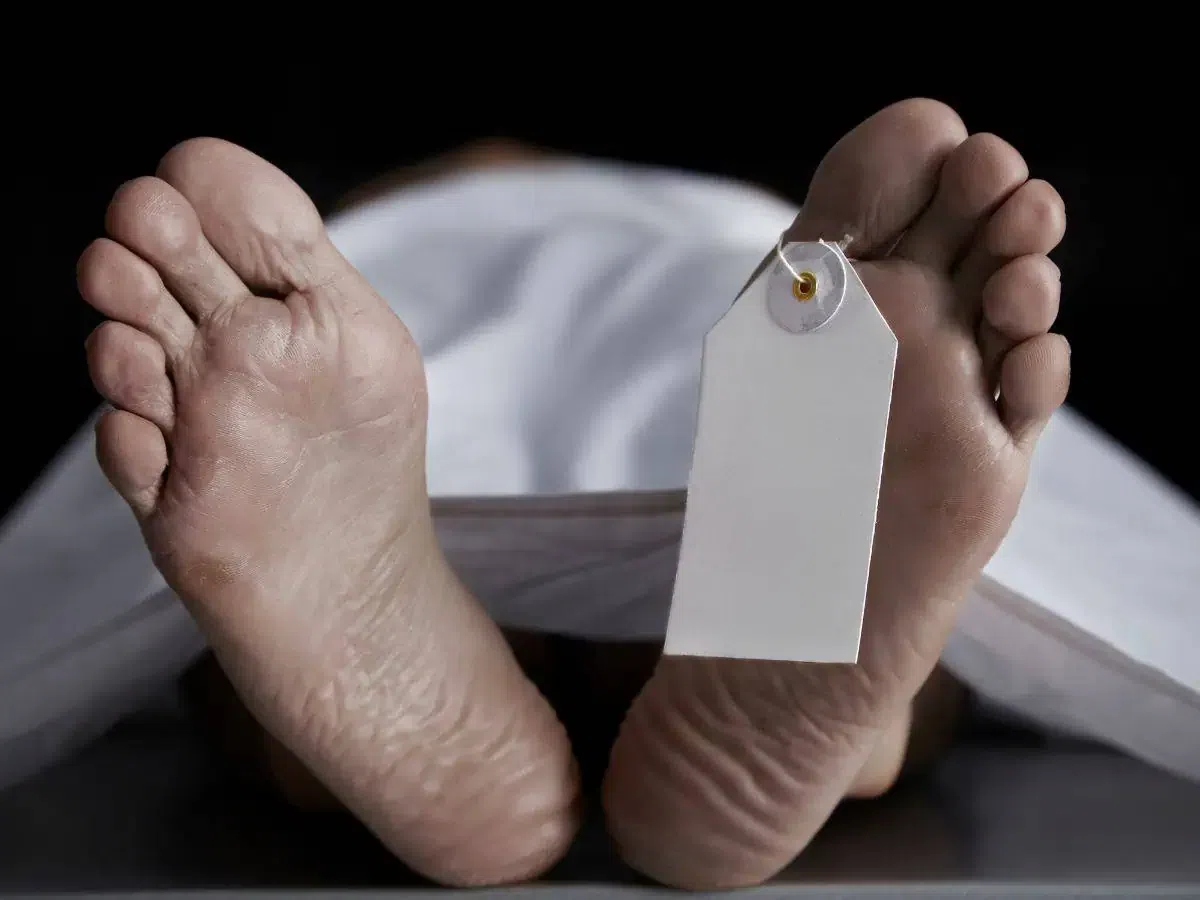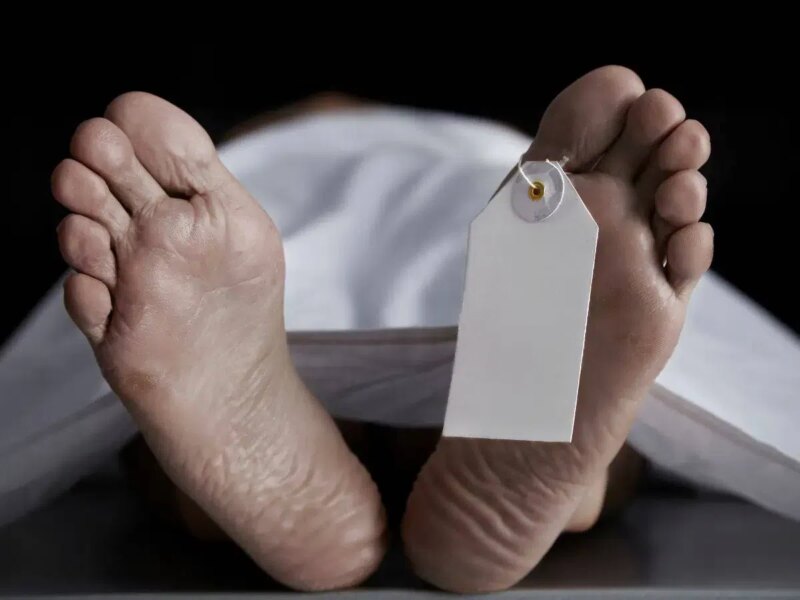
Imagine being with your partner, both of you reaching climax, when suddenly they collapse lifeless on you. The panic, the shock, the fear that you will feel, and if you are in Nigeria, you will do jail unless God intervenes.
Yes, sex is one of life’s greatest pleasures, but it’s also a physically demanding act that pushes the heart and body. Without good health, the risk can be deadly. Every so often, stories surface of people who die during sex; no one sets out to pass on to glory in pursuit of cloud nine.
However, it does happen, and to understand why, we spoke with two cardiologists, and their answers revealed a mix of reasons.
ALSO READ: My First Time Having Sex: 7 Nigerians share wild, honest stories
Reasons Why People Die During Sex
According to Abdulkareem, Misbahudeen Olohuntoyin, Medical Officer, Founder and Clinical Lead of Lifelight Cardiovascular Foundation, the most common medical reasons people die during sexual activity are usually of cardiac origin. He says that during sex, most specifically during orgasm, there is a surge in sympathetic drive that elevates the heart rate and blood pressure, predisposing a person to all forms of cardiovascular accidents, depending on known or unknown risk factors the individual has.
Abdulkareem explained that due to a low adoption of autopsy in Nigeria, there is little to no evidence as to why a person dies during sex; however, some of the documented causes of death during sexual activities include sudden cardiac death (SCD) or abrupt arrhythmia with no identifiable abnormality during autopsy.
YOU MIGHT LIKE: Peeing after sex prevents pregnancy: Myth or Fact?
Dr. Famutimi Oluwadara (MbChB) simply listed out the common causes of why people die during sex as:
-
Sudden cardiac arrest (SCA ) — Many Studies and clinical series have shown to find SCA to be the most frequent immediate cause when death is temporally linked to sexual activity.
-
Acute myocardial infarction (heart attack) — sexual activity is a physical activity that can (rarely) trigger plaque rupture and ischemia in vulnerable patients.
-
Aortic or cerebral aneurysm rupture and other vascular events — sudden, extreme rises in blood pressure during orgasm can precipitate rupture in people with preexisting aneurysms or uncontrolled hypertension.
-
Overdose/intoxication (drugs or alcohol)
-
Traumatic complications depending on the activity, although this is rare.
Who Is At Risk?
The doctors both agreed that underlying conditions like heart disease, high blood pressure, or the use of drugs/medications (e.g., Viagra) increase the risk of dying during sex. Dr. Abdulkareem explained:
In patients with long-standing poorly-controlled hypertension, various events such as rupture of an aneurysm in the brain, dissection of the aorta, or heart attack can occur, putting them at risk of death during sex.
RECOMMENDED: Chlamydia: The hidden infection you might not notice
He further added that some medications used to enhance sexual performance, like commonly abused herbs, sildenafil, or Viagra, work by causing dilation of vessels, as with many anti-hypertensive medications.
Other medications such as amphetamines, excessive alcohol, and cocaine have also been linked to myocardial infarction and arrhythmia, and are a common cause of sudden cardiac death (SCD) during sexual activity.
Are Men More Likely To Die During Sex?
Dr. Famutimi says that men are more likely than women to die during sex because multiple autopsy and case-series reviews show far more male than female victims.
Women can and do die from events triggered by sex, for example, aneurysm rupture, but the absolute numbers are smaller in published series.
EXPLORE: 69 steamy songs to add to your sex playlist
He added that the risk of dying during sex increases with age and a sedentary lifestyle, including smoking, obesity, poor diet, and substance misuse, which raise baseline cardiovascular risk; hence, he advises regular physical activity and cardiac rehabilitation to lower that risk.
Steps to Reduce the Risk of Sudden Death During Sex
Manage cardiovascular risk, control your blood pressure, cholesterol, and diabetes. Stop smoking, lose weight where appropriate, and follow treatment plans for known heart disease.
These are some of the practical steps that Dr. Famutimi reiterates for individuals or couples to reduce the risk of death during sex.
RELATED: 9 Things you should do after unprotected sex
Dr. Abdulkareem says, reducing salt intake, taking an appropriate amount of water per day, doing brisk exercise for at least 30 minutes 5 times a week, eating a healthy diet, avoidance of stimulants, and having regular checkups. This is in addition to avoiding high-risk behaviors during sex to keep you safe.
Behaviours such as strangulation, erotic asphyxiation, or breath control are highly discouraged unless both parties understand the risks and have safety measures in place.
Is Sex Dangerous for Heart Patients?
Sex is often compared to moderate physical activity, like climbing two flights of stairs. For most people with stable heart conditions, this level of exertion is safe. The risk mainly arises in patients with uncontrolled high blood pressure, severe arrhythmias, or those recovering from a recent heart attack.
In such cases, the extra demand on the heart can trigger chest pain, shortness of breath, or even a cardiac event. Doctors stress that the danger lies less in sex itself and more in underlying heart disease that isn’t well managed. Patients who can tolerate mild-to-moderate exercise without severe symptoms are usually fit enough for sex.
READ ALSO: These 5 habits will increase your risk of getting a heart attack
But those who struggle with daily physical activity should seek medical clearance before resuming intimacy. The bottom line is sex isn’t automatically dangerous for heart patients; most can enjoy it safely with proper medical guidance.
FAQ: Why Do People Die During Sex?
Q: What are the main medical reasons?
Mostly sudden cardiac arrest from heart disease. Stroke, aneurysm, or arrhythmia are rarer causes.
Q: Who is most at risk?
People with heart disease, high blood pressure, obesity, diabetes, or recent heart attacks.
Q: Are men more at risk than women?
Yes. Men, especially middle-aged or older, and those using sexual enhancers, face a higher risk.








